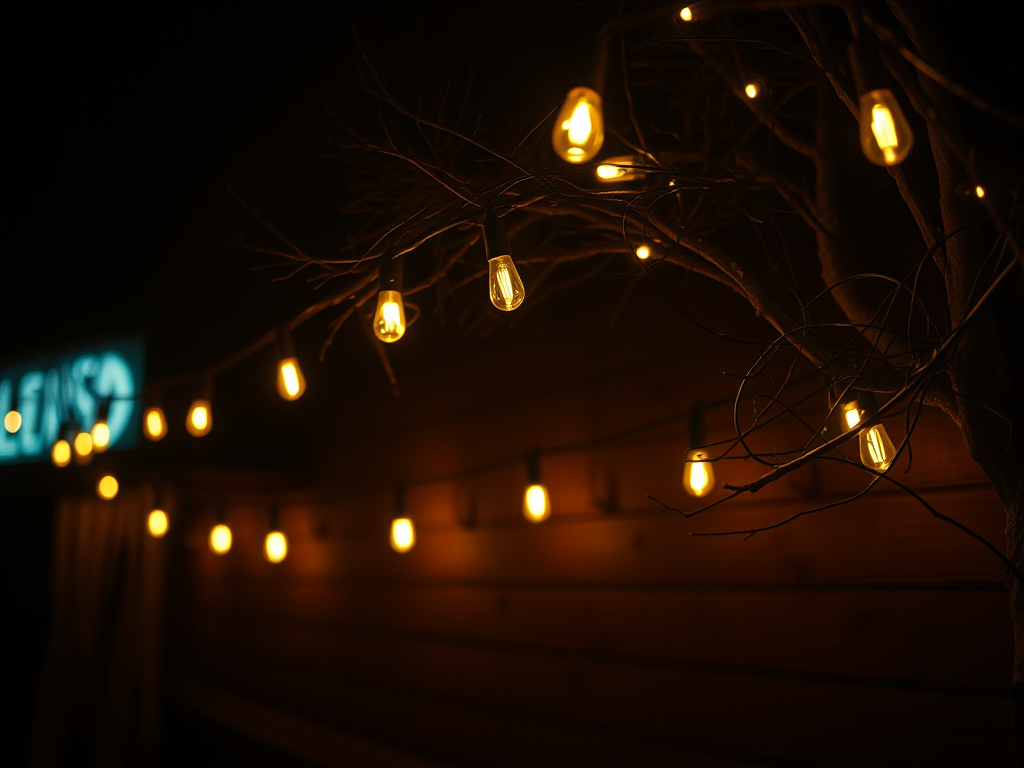Flickering lights can be more than just an annoyance; they might indicate underlying electrical issues that could range from minor to potentially hazardous. A Google search brings up tons of results. Here’s a detailed look into why your lights might be flickering and what you can do about it.
1. Loose Bulbs or Fixtures
The simplest explanation for flickering lights could be a loose bulb or fixture. Over time, vibrations or handling can cause bulbs to become loose in their sockets. This loose connection can lead to intermittent contact, causing the light to flicker.
- Solution: Check each bulb and fixture to ensure they are securely in place. Sometimes, simply tightening a bulb can resolve the issue.
2. Faulty Wiring
Wiring problems are a common culprit for flickering lights. Old or deteriorating wires can lose their insulation or become loose, leading to poor electrical connections.
- Signs: If the flickering is isolated to one area or room, it might be localized wiring issues. If it’s widespread, it could indicate a problem with the main wiring or electrical panel.
- Solution: This requires professional attention. An electrician can inspect and repair or replace faulty wiring.
3. Overloaded Circuits
Modern homes are filled with electrical devices, and sometimes, circuits can become overloaded. When too many devices draw power from the same circuit, it can cause lights to dim or flicker.
- Signs: Flickering lights often occurs when high-power devices like air conditioners, heaters, or washing machines turn on.
- Solution: Consider redistributing your electrical load. Use power strips with circuit breakers or consult an electrician to possibly add more circuits.
4. Voltage Fluctuations
Voltage changes can cause lights to flicker. This might be due to issues with the power grid or within your home’s electrical system.
- External Causes: Utility companies might be working on the grid, or there could be a problem with transformers or power lines.
- Internal Causes: Problems with your home’s electrical panel or wiring can also lead to voltage drops.
- Solution: For external issues, contact your utility provider. For internal problems, an electrician should check your home’s electrical setup.
5. Incompatible or Failing Light Bulbs
Not all bulbs are created equal. LED, CFL, and incandescent bulbs each have different characteristics. Sometimes, the type of bulb or its quality can lead to flickering lights.
- LEDs: If not compatible with your fixture’s dimmer or driver, LEDs might flicker.
- CFLs: These can flicker when they’re nearing the end of their lifespan or if there’s a mismatch with the fixture.
- Solution: Replace bulbs with ones that match your fixture’s specifications. For LEDs, ensure they are dimmable if used with a dimmer switch.
6. Electrical Panel Issues
The heart of your home’s electrical system, the panel, can also be the source of problems. Loose connections, outdated breakers, or corrosion can cause issues.
- Signs: If flickering lights are accompanied by a burning smell or if breakers frequently trip, this might be the case.
- Solution: Only a qualified electrician should inspect and repair issues within the electrical panel.
7. Environmental Factors
Sometimes, the environment itself can play a role. High winds, storms, or even wildlife can affect power lines, leading to fluctuations.
- Solution: While you can’t control the weather, ensuring your home’s electrical system is up to date and well-maintained can mitigate some risks.
When to Seek Professional Help
If you’ve checked the simple fixes like bulbs and fixtures, and the problem persists, it’s time to call in the professionals. Here are some red flags:
- Frequent flickering: If it’s happening regularly, not just during peak usage times.
- Accompanied by buzzing or humming sounds: This could indicate a more serious electrical issue.
- Burn marks or unusual smells: These are immediate signs of a potentially dangerous situation.
Conclusion
Flickering lights can be a symptom of various issues, from the trivial to the severe. While some problems can be solved with simple home maintenance, others require professional intervention to ensure safety and compliance with electrical codes. Always prioritize safety when dealing with electrical issues, and when in doubt, consult or hire a licensed electrician. Remember, addressing these issues promptly not only prevents inconvenience but also potential hazards like fires or electrical shocks.



